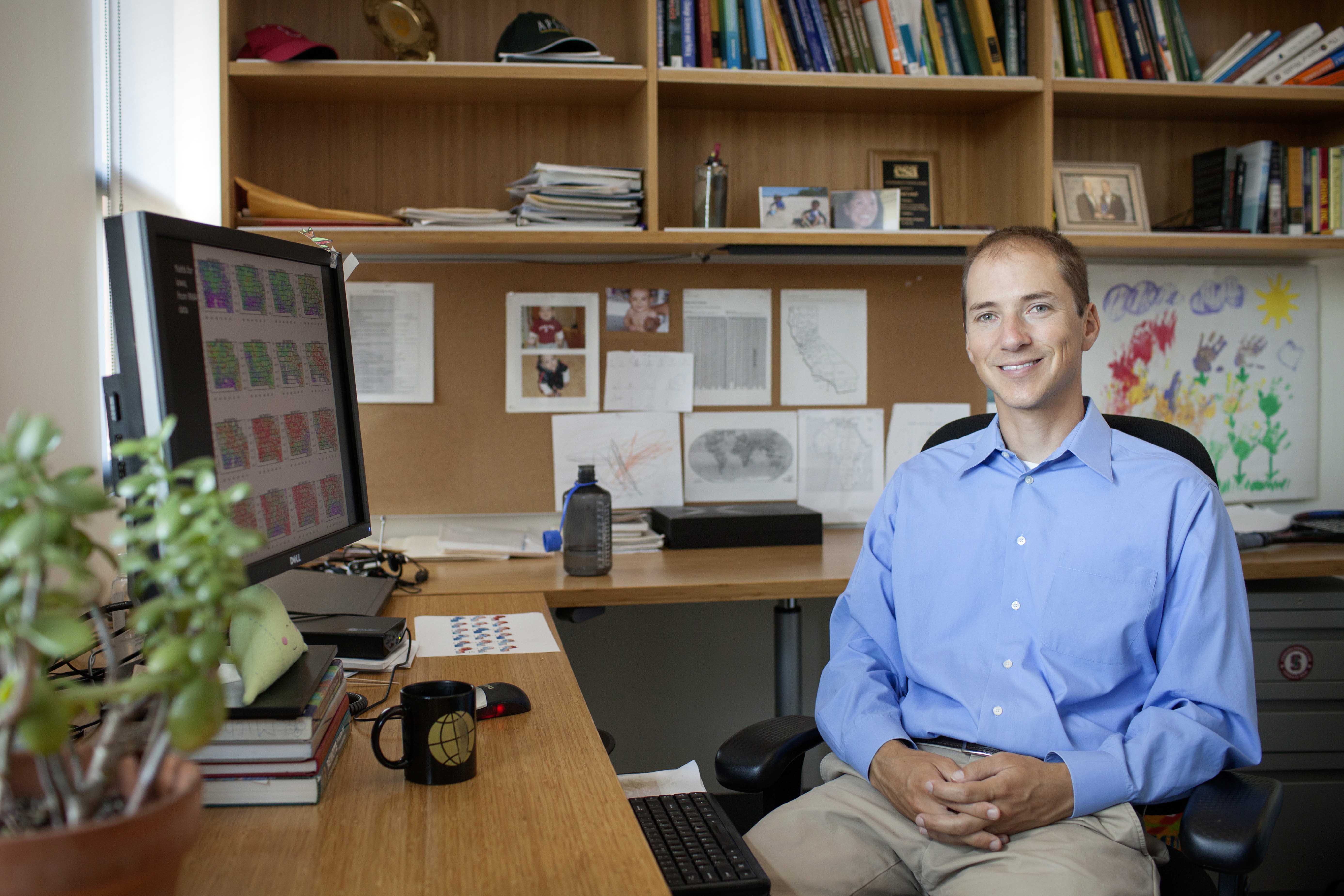Schreiber alumnus (‘96) and Stanford University professor David Lobell received one of this year’s exclusive Genius grants.
Given by the MacArthur Foundation, the grants are unique in that they provide funding to individuals instead of institutions. There is no way to apply for or even know that you have been nominated for a Genius grant. They are administered by a highly selective committee of nominators, which chooses grant recipients based on demonstrated creativity, track record in work, and observed potential to use the grant money in the best possible way.
Lobell’s work studies the balance between combatting world hunger and preserving ecological systems. The grant, which is given in segments and amounts to $625,000 in total, will help his research progress further.
As a Schreiber student, Lobell was involved in research.
“I think the research program was a great complement to traditional classes,” said Lobell. “It gives experience to help understand that math and science are not just about learning what is already known, but also about discovering new things.”
The research program is under fire from many fronts, however. Due to increasing competition, the program is producing fewer finalists in national competitions, and participating teachers and students have a limited time frame during which to work together and conduct research.
“I don’t really think the research program is giving me skills for the future,” said junior and math research student Crystal Ren. “It gives you opportunities to compete in certain competitions and forces you to do research over the summer of senior year, but the classes themselves don’t necessarily teach anything besides how to summarize articles. There are, of course, benefits, but compared to that of other schools, I feel like it has much room to improve.”
Nonetheless, Lobell chose to continue in a research-oriented field and reached considerable success.
“A lot of kids get burnt out,” said science research teacher Ms. Marla Ezratty. “I can’t do anything to keep my students focused on science. It comes from the kid. I would love it if they all went into science, but I really just want them to be happy.”
Lobell serves as an example for many students who did not intend to continue in math or science.
“We have a lot of kids who work in the computer science and engineering fields that we never expected would go into a research field,” said math research teacher Ms. Tina Gallagher.
Many budding scientists will change career paths, and aspiring science students often change their plans once they observe firsthand the rigor associated with most science courses. Although there are initiatives in place to encourage young people to stay with science, Lobell argues that the issue may be the incompatibility between human nature and the nature of science as a subject.
“At the beginning it can be hard and not much fun, but once you master the basics it can give you a lifetime of rewards,” said Lobell. “Take the time and effort to really understand things even if it means asking really dumb questions.”
Lobell believes that in research, imagination is the key. “In general, I think creativity and originality is important to encourage in future scientists,” he said. “We have many big challenges as a society, and the solutions are much more likely to come if people are able to think of and try many different approaches.”

